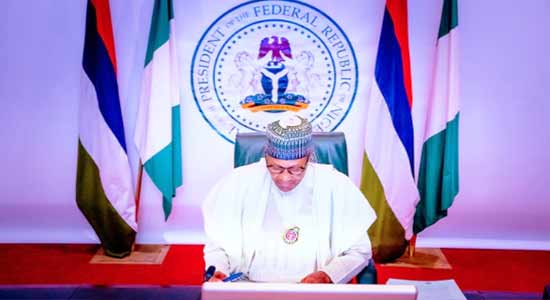From Juliana Taiwo-Obalonye, Abuja
The Civil Society Legislative Advocacy Centre (CISLAC) has offered a nuanced reflection on the legacy of former Nigerian President Muhammadu Buhari following his passing on Sunday, July 13, 2025.
While acknowledging Buhari’s sincere intentions and international credibility, CISLAC’s Executive Director, Auwal Musa Rafsanjani, highlighted internal political challenges that may have limited the effectiveness of his administration.
In a statement released on Sunday, Rafsanjani expressed condolences and praised Buhari’s early leadership, particularly his military-era War Against Indiscipline (WAI) campaign. “May his soul rest in peace. Nigerians will particularly remember him for his early leadership as a military head of state, during which he launched the War Against Indiscipline,” he said. The WAI initiative, Rafsanjani noted, instilled a culture of civic responsibility and patriotism, encouraging citizens to respect national symbols and public order.
However, Rafsanjani also acknowledged the criticisms that shadowed Buhari’s military rule, particularly regarding human rights concerns, which continued to inform public discourse even after Buhari’s return as a democratically elected president in 2015. “Expectations were high when he assumed office, and many believed he would drive major reforms,” Rafsanjani observed. “However, over time, especially during his second term, public confidence waned, with many Nigerians feeling that anticipated changes were not fully realized.”
While commending Buhari’s genuine commitment and the international respect he garnered, Rafsanjani pointed to the complex political realities within Nigeria that constrained his administration. “He came into office with noble goals and enjoyed public trust in the beginning. However, governance is complex, and political dynamics—particularly the influence of certain figures within his administration—posed significant challenges,” he said. “This offers an important lesson. Leadership must go beyond vision and must include effective execution, transparency, and accountability.”
Rafsanjani further highlighted Buhari’s role in shaping national conversations around anti-corruption, security, and civic discipline, noting CISLAC’s active engagement with his government on governance reforms. “His leadership helped set the tone for these critical issues, and civil society played a key role in advocating for institutional accountability throughout his tenure,” he added.
In conclusion, Rafsanjani urged current and future Nigerian leaders to prioritize national interest and strive for legacies that earn respect both domestically and internationally. “May Allah grant him eternal rest. Ameen,” he said.


